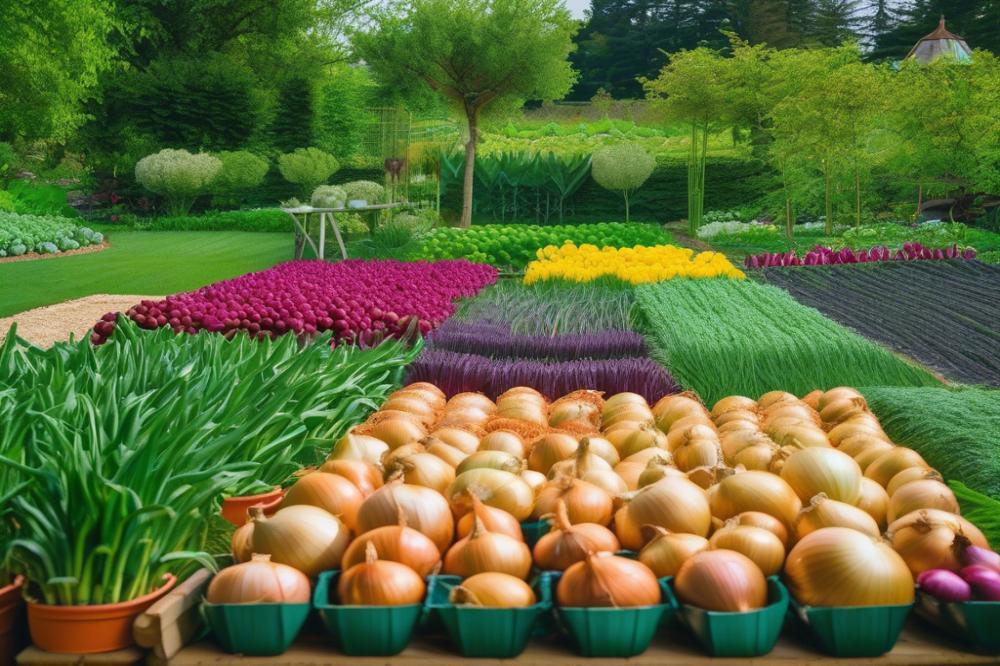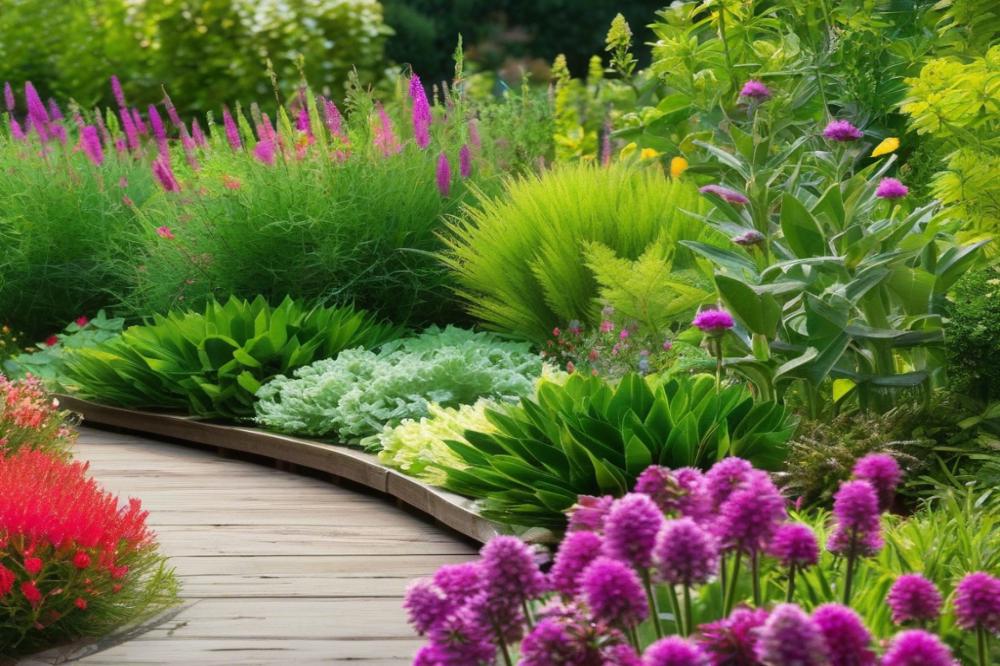Benefits of Using Onion and Garlic Companions for pest control
Pest management plays a crucial role in organic gardening. Garden enthusiasts strive to keep their plants healthy and free from harm. Unfortunately, invasive creatures can pose a serious threat to their crops. That’s where natural solutions come into play. Among these, onion and garlic stand out as effective allies.
These aromatic vegetables serve not only as food but also as powerful pest repellents. Their unique compounds have pest-repelling properties, making them valuable in vegetable gardening. By planting onions and garlic together with other crops, gardeners can enhance plant health while keeping unwanted garden pests at bay. This method is known as companion planting, and it’s a fundamental aspect of sustainable agriculture.
Using onion and garlic companions contributes to a healthier ecosystem. Reduced reliance on synthetic pesticides promotes biodiversity in gardens. Beneficial insects can thrive, creating a more balanced environment. Ultimately, these practices offer an eco-friendly approach to gardening. Embracing natural ways to manage pests fosters a sense of responsibility toward the environment. In doing so, gardeners can achieve robust plants and a thriving garden.
Understanding pest control in organic gardening
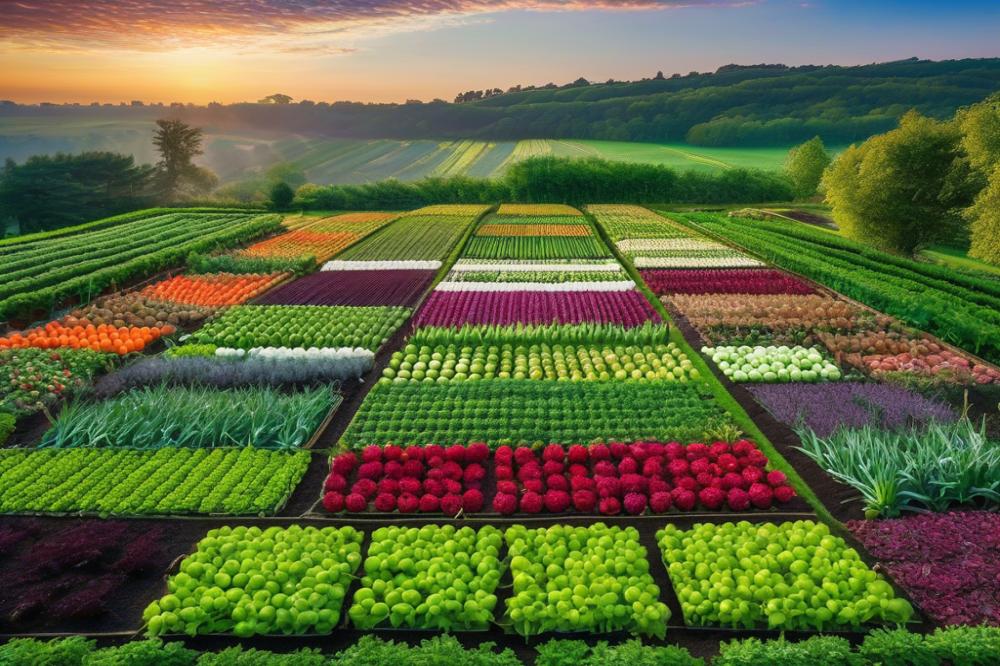

Pest control is a crucial aspect of organic gardening. It involves managing garden pests without relying on synthetic chemicals. This method supports healthy plant growth and promotes biodiversity. Chemical pesticides, while sometimes effective, can cause long-term damage to the environment. They may harm beneficial insects and contaminate soil and water sources. Such consequences can lead to decreased plant health overall.
Organic gardening seeks to create a balanced ecosystem. Instead of chemical solutions, farmers and home gardeners often turn to natural pesticides. These alternatives are generally less harmful and more sustainable. Many organic gardeners practice companion planting—growing certain plants together to improve growth and protect against pests. Onions and garlic are prime examples of effective companions in the vegetable garden.
When planted alongside other crops, onions and garlic can serve as excellent pest repellents. Their strong scents deter many common garden pests. Aphids, beetles, and even some caterpillars tend to avoid these aromatic plants. This natural defense helps maintain a healthy garden without resorting to harsh chemicals.
Using these natural options also supports sustainable agriculture. Crop rotation and companion planting reduce the need for chemical interventions. Growers can protect their plants while promoting ecological health. By retaining natural pest control methods, they foster resilience in their gardens over time. As more individuals learn about organic practices, the benefits of these methods become clearer.
The Role of Onions and Garlic in Companion Planting
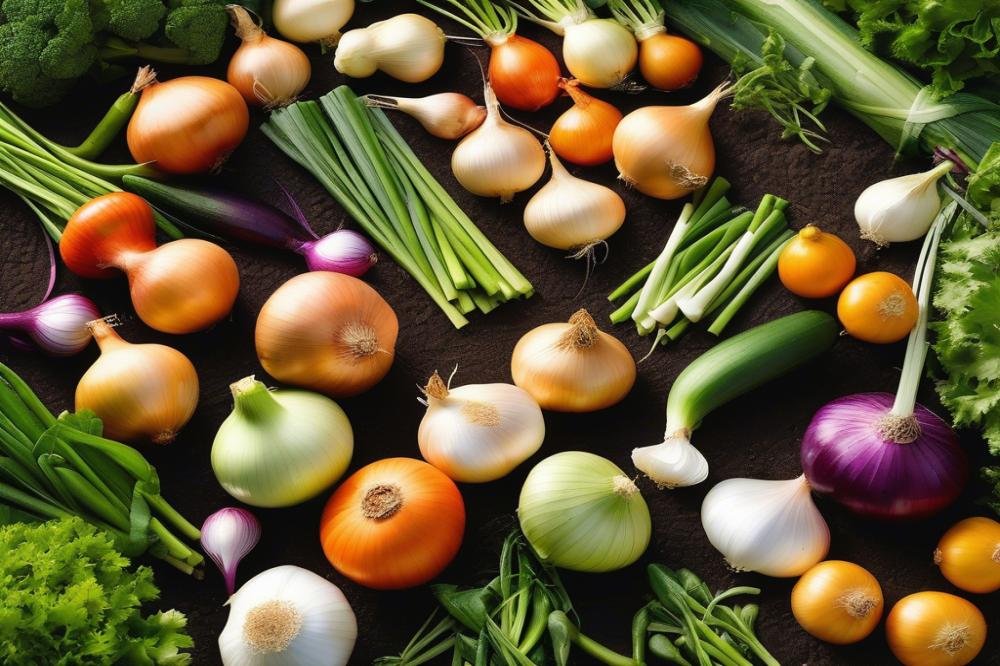

Onions and garlic stand out as powerful allies in vegetable gardening. Their natural pest repellents play a significant role in creating a healthier garden environment. These two plants emit strong odors that deter harmful insects. As a result, they help protect neighboring crops from various garden pests.
Garlic, in particular, contains sulfur compounds, which are known to act as natural pesticides. When plants are close to garlic, they may experience fewer attacks from aphids and other unwanted visitors. Onions also offer similar benefits. They belong to the allium family, which is famous for its pest-repelling properties.
Companion planting with these vegetables can greatly enhance plant health. For instance, tomatoes thrive when grown alongside onions. The pungent scent of onions can confuse pests that might otherwise target the tomatoes. Additionally, carrots are another great match. The aroma of onions can mask the scent of carrots, keeping them safe from pesky carrot flies.
In organic gardening, integrating garlic and onions can contribute to sustainable agriculture. Not only do these plants naturally ward off pests, but they also improve soil health. The roots of onions and garlic help loosen the soil, making it easier for other plants to absorb nutrients and water.
Certain herbs also benefit from being near these powerful companions. Basil, for example, can enjoy the protection onions and garlic provide. Their distinct smells disrupt insects while promoting better growth among the herbs. Overall, using onions and garlic in companion planting helps create a balanced ecosystem for the garden, ensuring a fruitful harvest.
Gardeners should consider these unique benefits when planning their layouts. The next time you plant vegetables, think about how onions and garlic can fit into the mix. By strategically placing them, you can create a thriving environment for all your plants. The synergy among plants can provide enhanced growth while minimizing the need for chemical interventions.
How Onion and Garlic Deter Garden Pests
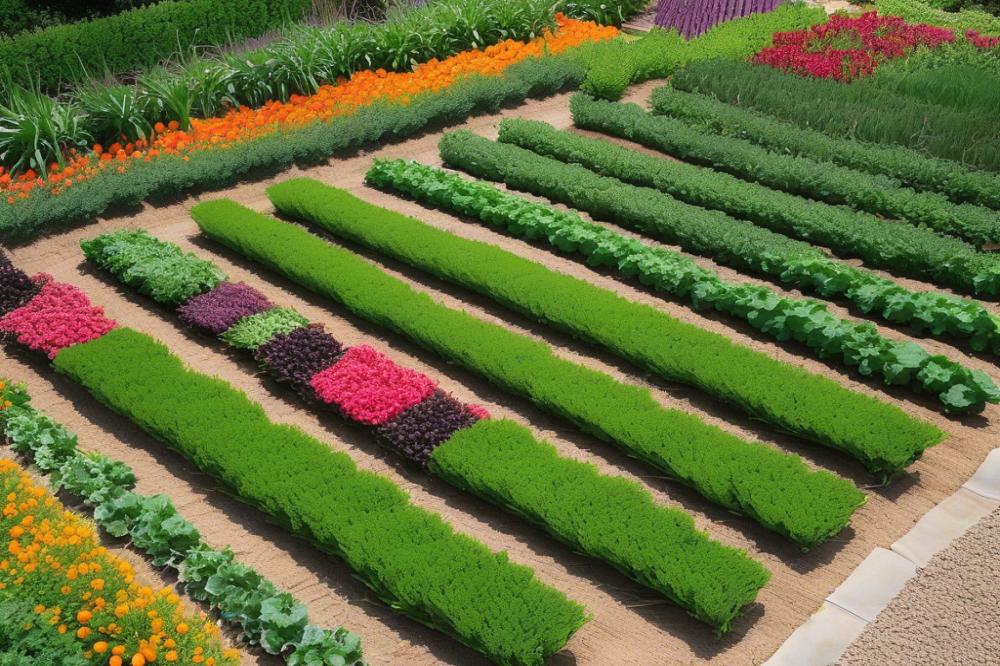

Onions and garlic serve as effective natural pest repellents in organic gardening. Their strong odors play a significant role in deterring various garden pests. For instance, aphids, whiteflies, and spider mites often steer clear of these aromatic vegetables. These pests are not just nuisances; they can harm plant health and reduce crop yields.
Pests are often sensitive to strong smells. In the case of onions, sulfur compounds are released when the plant is crushed or cut. These compounds have a powerful scent that repels many insects. Garlic contains allicin, a natural pesticide that comes into play when the bulb is damaged. Its pungent smell is a significant deterrent for numerous unwanted visitors in the garden.
Many gardeners have turned to companion planting, using onions and garlic to protect other crops. For example, planting garlic alongside tomatoes has shown positive results. This combination not only enhances the flavor of the tomatoes but also helps keep aphids away. Anecdotal evidence suggests that mixing these alliums with other vegetables can create a healthier garden environment.
Research supports the use of garlic as a natural pesticide. A study by the University of Florida found that garlic extracts were effective against various pests. The findings indicated that not only did garlic repel insects, but it also showed some fungicidal properties. These characteristics make garlic an essential component in sustainable agriculture practices.
Moreover, onions and garlic can help create a balanced ecosystem in vegetable gardening. By integrating these plants into your garden, you may notice fewer pests around your favorite vegetables. As a bonus, they also contribute beneficial nutrients to the soil. Such advantages highlight why many gardeners prefer these natural strategies over chemical pesticides.
Using onions and garlic in pest prevention adds another layer of protection. They don’t just repel pests; they also promote overall plant health. For gardeners looking for simple, effective, and environmentally friendly solutions, these two vegetables are excellent options. Their dual role as food and pest control agents makes them quite unique in the realm of natural gardening.
Implementing Onion and Garlic Companions in Your Garden
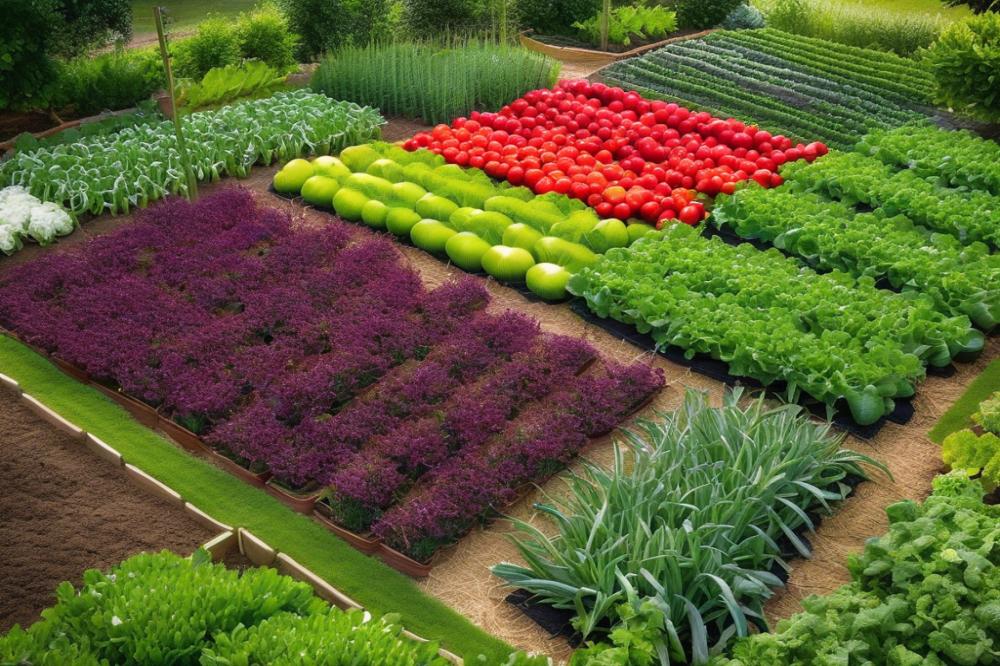

When starting an organic gardening project, consider adding onions and garlic to your layout. These two plants act as natural pest repellents. Both have strong scents that deter many garden pests, making them great companions in your vegetable garden. Placing them near crops like tomatoes, carrots, and peppers can enhance plant health and reduce the risk of infestations.
Timing is key for planting these companions. Onions can be sown in early spring, while garlic should be planted in the fall. Planting garlic now gives it time to establish roots before winter. For onions, a spring start helps them grow throughout the warmer months. Regular monitoring will help assess which plants thrive best together.
Companion planting offers numerous combinations that benefit each crop. For example, intersperse garlic with roses to ward off aphids, or plant onions alongside beans to keep those pesky pests at bay. These relationships illustrate the principles of sustainable agriculture, where diverse plant life enhances resilience.
Spacing also plays an important role in your garden design. Crowded plants can lead to disease and lower yields. Provide ample room for each crop, ensuring air circulation. Aim for a balance between different heights and sizes; this diversity creates a vibrant ecosystem.
Maintaining healthy soil improves overall plant vigor. Integrate organic compost to feed your onions and garlic. Healthy soil encourages a strong immune response in plants, further protecting against pests. This practice reduces reliance on unnatural pesticides and aligns with the goals of sustainable agriculture.
Consider joining local gardening groups. These communities often share valuable tips and experiences about companion planting. You’ll discover unique strategies for dealing with common garden pests while learning from fellow gardeners. Embracing this knowledge can transform your gardening approach and yield better results.
Incorporating onions and garlic is an accessible entry point into the world of companion planting. Their natural abilities to deter pests make them essential allies in the quest for a thriving garden. By embracing diverse plant combinations, you can cultivate healthier crops and enjoy the rewards of your efforts.
Potential Challenges and Considerations
Gardeners who choose to use onions and garlic as natural pest repellents may face several challenges. Compatibility issues can arise when these plants are grown alongside certain vegetables. For example, onions and garlic are known to inhibit the growth of beans and peas. If planted together, these crops may struggle to thrive. This could impact overall plant health and yield.
Another consideration involves cultivation practices. Both onions and garlic may require specific growing conditions. They prefer well-drained soil and full sun. If the garden conditions are not ideal, these plants might not reach their full potential. Consequently, their effectiveness as pest control measures could be reduced.
Timing is also crucial when cultivating these companion plants. Onions and garlic should be planted at the right time of year to ensure optimal growth. If planted too late, they may not develop sufficiently. This can lead to weaker pest repellents during the growing season.
Gardeners should also consider the space required for companion planting. Onions and garlic can grow quite large and may overshadow smaller plants. Careful planning of the garden layout is essential to avoid overcrowding. Spacing them appropriately will help maintain good air circulation and light exposure for all plants involved.
To mitigate these challenges, it’s beneficial to research plant compatibility before starting a garden. Utilizing companion planting charts can inform decisions on what to grow together. These resources help in selecting companion plants that will not only support pest control but also encourage strong growth.
Moreover, applying organic gardening principles can enhance overall effectiveness. Implementing crop rotation and practicing soil health techniques will benefit all plants involved, including onions and garlic. These practices can create a more sustainable agriculture approach while still utilizing natural pesticides.
Regular monitoring of the garden for pests is also important. By checking plants frequently, gardeners can catch issues before they escalate. This proactive approach complements the natural pest control benefits of onions and garlic.
Final Thoughts
Gardening with onions and garlic offers several advantages, particularly in the realm of organic gardening. Their strong scents can deter various harmful insects, making these plants effective allies. Home gardeners benefit greatly from these companions, as they provide a natural way to protect crops without relying on synthetic chemicals.
Using natural pesticides is crucial for maintaining a healthy ecosystem. By favoring these methods, gardeners contribute to sustainable agriculture practices that prioritize soil health and the well-being of beneficial insects. Intentionally cultivating these plants alongside others can lead to healthier plants overall.
Exploring the use of onion and garlic in gardens signifies a commitment to safer gardening choices. With pests often threatening our crops, incorporating these unique companions can be an essential strategy. You don’t only protect your plants but also nurture the environment around you.
In conclusion, embracing these simple, yet effective methods allows gardeners to cultivate a thriving, healthier garden. The more we can rely on natural solutions, the better our gardens and the planet will thrive. Start experimenting with these companions today for a truly rewarding gardening experience.

